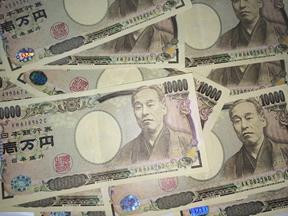The United States Treasury Department has added Japan to its "monitoring list" of major trading partners whose currency practices warrant close scrutiny. This decision, announced on Thursday, comes as part of the Treasury's semi-annual report, which evaluates the foreign exchange activities of countries with significant trade surpluses.
Japan joins China, Taiwan, Malaysia, Singapore, Vietnam, and Germany on the monitoring list. The Treasury report confirmed that no major trading partner, including Japan, was designated as a currency manipulator for the period covering the four quarters through December 2023. The report's findings indicate that while Japan met two of the three criteria required for "enhanced analysis," it did not engage in persistent one-sided intervention in the foreign exchange market.
According to the Treasury Department, Japan's inclusion on the list is due to its material current account surplus and significant bilateral trade surplus with the United States. However, the country did not meet the third criterion, which involves sustained, one-sided intervention in the foreign exchange market. This criterion requires a pattern of continuous and substantial net purchases of foreign currency over a prolonged period.
"Japan's addition comes after the authorities there began intervening in the currency markets in April to bolster the flagging yen," the report stated. The yen has depreciated significantly, falling from around 115 per dollar before Russia's invasion of Ukraine in February 2022 to almost 160 per dollar. This depreciation was partly due to the Bank of Japan's decision to maintain ultra-low interest rates, contrasting with the rate hikes by other central banks.
Since the currency interventions began, the Japanese government has spent approximately $62 billion to support the yen, according to data published late last month. Despite these interventions, the Treasury official clarified that these actions were not the primary reason for Japan's addition to the monitoring list. Instead, the decision was based on Japan's high trade and current account surpluses.
The Treasury's report also emphasized the importance of transparency in foreign exchange operations. "Treasury's expectation is that in large, freely traded exchange markets, intervention should be reserved only for very exceptional circumstances with appropriate prior consultations," the report noted, highlighting Japan's transparency in its operations.
China remains on the monitoring list, primarily due to its large trade surplus with the U.S. and a lack of transparency in its foreign exchange policies. The report pointed out discrepancies in China's reporting of its current account balance and trade surplus data, which appear inconsistent with data from other trading partners and China's own customs information.
"China's failure to publish foreign exchange (FX) intervention and broader lack of transparency around key features of its exchange rate mechanism continues to make it an outlier among major economies and warrants Treasury's close monitoring," the report stated. A Treasury official mentioned that the department is working to understand these "anomalies" in China's data.




